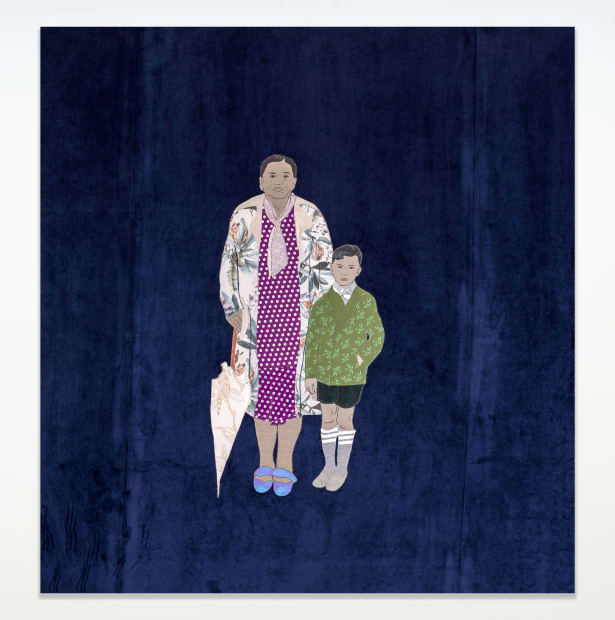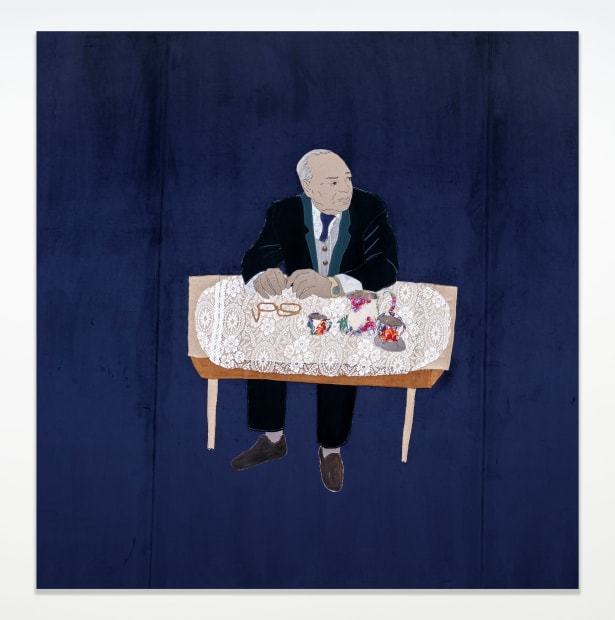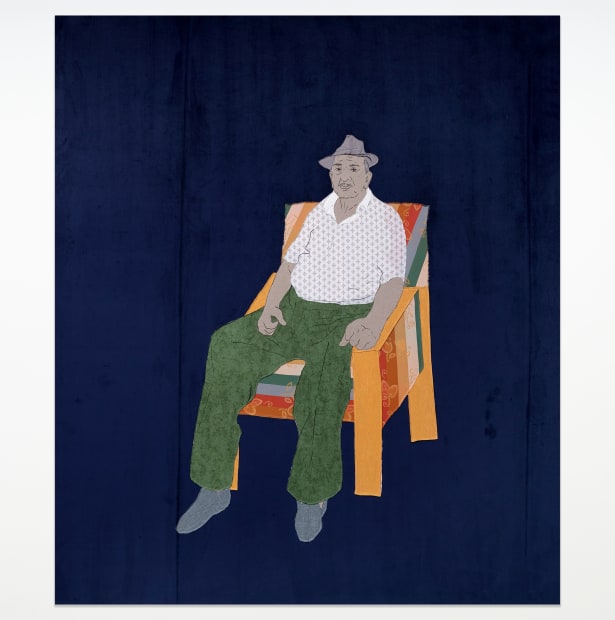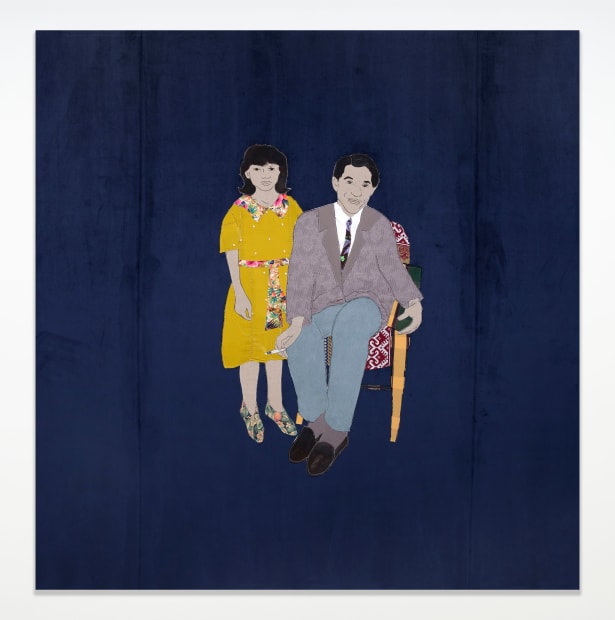Małgorzata Mirga-Tas
-
-
Frith Street Gallery is pleased to present the first UK exhibition of artist, educator and activist Małgorzata Mirga-Tas. Mirga-Tas’s work addresses anti-Romani stereotypes and engages in building an affirmative iconography of Romani communities. She often depicts everyday life: relationships, alliances and shared activities. The artist’s vibrant textile collages are created from materials and fabrics collected from family and friends, which imbues them with a life of their own and a corresponding immediacy. Patchworks made of curtains, jewellery, shirts, and sheets are sewn together to form so-called 'microcarriers' of history, just as resulting images revise macro perspectives.
The series of portraits in this exhibition is entitled Siukar Manusia (which can be translated from Romani as great, or wonderful people). The images are of first-generation Romani inhabitants of the Nowa Huta district in eastern Kraków and have evolved from two earlier projects. In 2019 the artist collaborated with a Kosovan Romani community to create HERSTORIES, a series of portraits of extraordinary Romani women, both local and international. This in turn lead to Mirga-Tas’s celebrated presentation Re-enchanting the World in The Polish Pavilion at the 59th Venice Biennale in 2022. This large installation was inspired in part by the renaissance frescos in the Palazzo Schifanoia, Ferrara, which the art historian Aby Warburg used to illustrate the recurrence of certain artistic motifs across cultures and centuries.
The imagery employed in the works shown at Golden Square is drawn from personal photographs shared with the artist by friends and family as well as the vast audiovisual archives of the USC Shoah Foundation that holds the testimonies of Romani Holocaust survivors. A parallel inspiration was the book O Romach w Nowej Hucie słów Kilka (A handful of facts on the Nowa Huta Roma) by Monika Szewczyk as well as the life story of Krystyna Gil (1938–2021) the first Romani tram driver and a former resident of Nowa Huta whose portrait is also in the exhibition. These are people who are personally important to Mirga-Tas, ranging from concentration camp survivors and Roma activists to eminent musicians. The portraits are realised using found and donated textiles, carefully selected and constructed by the artist and her studio assistants to provide both new life to the discarded clothes and a visibility and dignity to the people wearing them.
-

-

-

-
'I chose this background to show that they came to us from darkness and we see them, and they are visible now and they have their own voice. They can say something about themselves. And we give them dignity; I give them dignity.'
-
-

-

-

-
'I think it's very important to collaborate with the Roma people. When I want to talk about somebody, I cannot start without the family, and without trust.'
-

-

-

-
‘All these portraits and representations from Roma settlements arise from the need to preserve, to remember [...] It’s a bit like when my grandmother used to tell us stories about exceptional Roma. And now I do the same in my works.’
-
-
-
-
-
-
-

-
Installation photography: Ben Westoby
Videography: Jon Lowe









